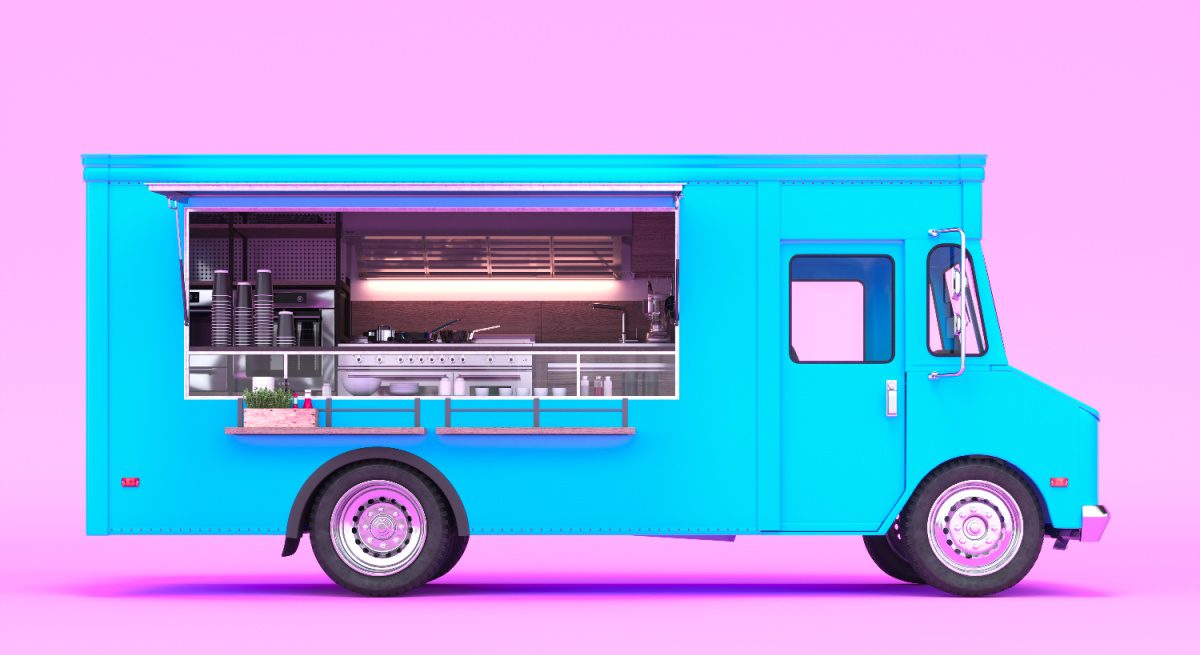Getting Started with a Solid Food Truck Business Plan
Launching a successful food truck business requires a well-structured plan, especially for beginners. A comprehensive business plan helps navigate the challenges of starting a food truck business, including defining your target market, menu, and financial projections. By creating a solid plan, you can ensure a smooth launch and set your business up for long-term success.
A good business plan should include market research, a detailed menu, and financial projections. Market research helps you understand your target audience, their preferences, and the competition. A detailed menu should include a list of offerings, pricing, and nutritional information. Financial projections should include startup costs, ongoing expenses, and revenue projections.
When creating your business plan, consider the following key elements: target market, menu engineering, marketing strategies, operational logistics, and financial management. By including these elements, you can create a comprehensive plan that sets your food truck business up for success.
For example, if you’re planning to launch a food truck that serves gourmet grilled cheese sandwiches, your business plan should include market research on the demand for gourmet grilled cheese, a detailed menu with pricing and nutritional information, and financial projections that include startup costs and revenue projections.
By following these steps and creating a solid business plan, you can ensure a successful launch and set your food truck business up for long-term success. Remember to review and update your plan regularly to ensure you’re on track to meet your goals.
How to Choose a Profitable Food Truck Concept for Beginners
Choosing a profitable food truck concept is crucial for beginners. With so many options available, it can be overwhelming to decide on a concept that will resonate with customers and generate revenue. However, by researching popular cuisines, identifying gaps in the market, and considering dietary trends, beginners can increase their chances of success.
One way to start is by researching popular cuisines in your area. Look at what types of food trucks are already successful and what types of cuisine are in demand. You can also use online resources such as food blogs and social media to see what types of food are trending.
Another important factor to consider is identifying gaps in the market. Look for areas where there is a lack of food trucks or a specific type of cuisine. This can help you to differentiate your food truck and attract customers who are looking for something new and unique.
Additionally, considering dietary trends is essential. With the rise of plant-based diets and gluten-free options, it’s essential to consider how you can cater to these customers. You can also consider offering vegan or gluten-free options to attract customers who are looking for these types of food.
When choosing a food truck concept, it’s also essential to consider your passions and skills. If you’re passionate about a particular type of cuisine, it will show in the quality of your food and the service you provide. Additionally, if you have skills in a particular area, such as cooking or marketing, it can help you to stand out from the competition.
Some popular food truck concepts for beginners include gourmet grilled cheese, tacos, and ice cream. These concepts are often easy to execute and can be customized to fit your target market. However, it’s essential to remember that the key to success is to choose a concept that you’re passionate about and that aligns with your skills and target market.
By following these tips and choosing a profitable food truck concept, beginners can increase their chances of success and create a thriving business. Remember to stay focused on your target market and to continually evaluate and improve your concept to ensure long-term success.
Essential Equipment and Supplies for a Food Truck Startup
Launching a food truck business requires a significant investment in equipment and supplies. As a beginner, it’s essential to prioritize the essential items that will help you to operate efficiently and effectively. In this article, we’ll outline the essential equipment and supplies needed to launch a food truck business, including cooking equipment, point-of-sale systems, and marketing materials.
Cooking equipment is the backbone of any food truck business. You’ll need to invest in high-quality equipment that can withstand the demands of a busy food truck. Some essential cooking equipment includes a commercial-grade stove, refrigerator, and freezer. You’ll also need to invest in cooking utensils, pots, and pans.
A point-of-sale (POS) system is also essential for any food truck business. A POS system will help you to process transactions efficiently and effectively, and will also provide you with valuable insights into your sales and customer behavior. When choosing a POS system, consider the following factors: ease of use, scalability, and integration with other systems.
Marketing materials are also essential for any food truck business. You’ll need to invest in high-quality marketing materials, including business cards, brochures, and social media graphics. Consider hiring a professional designer to create your marketing materials, as this will help you to establish a strong brand identity.
Other essential supplies for a food truck business include packaging materials, cleaning supplies, and safety equipment. You’ll also need to invest in a generator, propane tanks, and other equipment to power your food truck.
When sourcing equipment and supplies, consider the following tips: shop around for the best prices, consider buying used or refurbished equipment, and prioritize quality over cost. By investing in the right equipment and supplies, you’ll be able to launch a successful food truck business that will attract and retain customers.
Some popular suppliers of food truck equipment and supplies include Restaurant Supply Store, Food Truck Equipment, and Marketing Materials Inc. Consider researching these suppliers and others to find the best deals on the equipment and supplies you need.
Menu Engineering for Food Truck Success
Menu engineering is a crucial aspect of any food truck business. A well-designed menu can help to drive sales, increase profitability, and attract and retain customers. In this article, we’ll discuss the importance of menu engineering for food truck success, including strategies for creating a menu that is both profitable and appealing to customers.
When designing a menu for your food truck, it’s essential to consider the following factors: profitability, ease of execution, pricing, and alignment with your target market. A profitable menu should include a mix of high-margin and low-margin items, as well as a range of price points to appeal to different customers.
Ease of execution is also critical, as a menu that is too complex or difficult to execute can lead to delays and mistakes. Consider simplifying your menu by offering a limited number of items, and focus on perfecting those items rather than trying to offer a wide range of options.
Pricing is also an essential consideration when designing a menu for your food truck. You’ll need to balance the need to make a profit with the need to offer competitive pricing to attract customers. Consider researching your competitors and understanding the pricing dynamics of your market.
Alignment with your target market is also critical, as a menu that doesn’t appeal to your target market can lead to low sales and poor customer satisfaction. Consider researching your target market and understanding their preferences and needs.
Some popular menu engineering strategies for food trucks include offering a limited menu, using high-quality ingredients, and creating a unique and memorable dining experience. Consider incorporating these strategies into your menu design to drive sales and increase profitability.
Additionally, consider using menu engineering software to help design and optimize your menu. These tools can help you to analyze your menu’s profitability, identify areas for improvement, and make data-driven decisions about your menu design.
By following these tips and strategies, you can create a menu that is both profitable and appealing to customers, and drive success for your food truck business.
Marketing Strategies for Food Truck Beginners
Marketing is a crucial aspect of any food truck business, and as a beginner, it’s essential to develop a solid marketing strategy to attract and retain customers. In this article, we’ll discuss effective marketing strategies for food truck beginners, including social media marketing, email marketing, and event marketing.
Social media marketing is a powerful tool for food truck businesses, as it allows you to connect with customers and promote your brand in a cost-effective way. Consider creating a business page on platforms like Facebook, Instagram, and Twitter, and post regular updates about your menu, promotions, and events.
Email marketing is another effective way to connect with customers and promote your brand. Consider building an email list and sending regular newsletters to subscribers with updates about your menu, promotions, and events.
Event marketing is also a great way to promote your food truck business and attract new customers. Consider participating in food festivals, concerts, and other events in your area, and offer special promotions and discounts to attendees.
Building a strong brand identity is also essential for food truck success. Consider developing a unique and memorable brand identity that reflects your values and mission, and use it consistently across all of your marketing materials.
Engaging with customers is also critical for food truck success. Consider using social media to respond to customer feedback and complaints, and offer special promotions and discounts to loyal customers.
Some popular marketing tools for food truck businesses include Hootsuite, Mailchimp, and Canva. Consider using these tools to streamline your marketing efforts and save time and money.
Additionally, consider using influencer marketing to promote your food truck business. Partner with local influencers and bloggers to promote your brand and attract new customers.
By following these marketing strategies, you can attract and retain customers, build a strong brand identity, and drive success for your food truck business.
Operations and Logistics for a Smooth Food Truck Launch
Launching a food truck business requires careful planning and attention to detail, particularly when it comes to operations and logistics. In this article, we’ll discuss the operational and logistical considerations for launching a food truck business, including permits, licenses, and health department regulations.
Obtaining the necessary permits and licenses is a critical step in launching a food truck business. Research the specific requirements for your city or state, and ensure that you have all the necessary permits and licenses before launching your business.
Health department regulations are also an important consideration for food truck businesses. Ensure that you are in compliance with all health department regulations, including food handling and preparation procedures.
Streamlining operations is also essential for a smooth food truck launch. Consider implementing efficient systems for ordering, inventory management, and customer service.
Managing staff is also a critical aspect of food truck operations. Consider hiring experienced staff, and provide them with comprehensive training on food handling, preparation, and customer service procedures.
Logistical considerations, such as parking and storage, are also important for food truck businesses. Research the best locations for parking and storage, and ensure that you have a plan in place for managing these logistical considerations.
Some popular tools for managing food truck operations include inventory management software, point-of-sale systems, and customer relationship management software. Consider using these tools to streamline your operations and improve efficiency.
Additionally, consider developing a comprehensive operations manual that outlines all aspects of your food truck business, including food handling and preparation procedures, customer service procedures, and logistical considerations.
By following these tips and considerations, you can ensure a smooth food truck launch and set your business up for long-term success.
Managing Finances and Cash Flow for Food Truck Success
Managing finances and cash flow is a critical aspect of any food truck business. As a beginner, it’s essential to understand how to track expenses, manage inventory, and maintain a healthy profit margin. In this article, we’ll discuss strategies for managing finances and cash flow for food truck success.
Tracking expenses is a crucial step in managing finances for a food truck business. Consider using accounting software to track expenses, including fuel, maintenance, and inventory costs.
Managing inventory is also essential for food truck success. Consider implementing a just-in-time inventory system to minimize waste and reduce costs.
Maintaining a healthy profit margin is also critical for food truck success. Consider pricing your menu items correctly, and ensure that you’re not overspending on ingredients and supplies.
Some popular tools for managing finances and cash flow for food truck businesses include QuickBooks, Xero, and Square. Consider using these tools to streamline your financial management and improve efficiency.
Additionally, consider developing a comprehensive financial plan that outlines your financial goals, expenses, and revenue projections. This will help you to stay on track and make informed financial decisions.
It’s also essential to consider the importance of cash flow management for food truck businesses. Consider implementing a cash flow management system to ensure that you have enough cash on hand to meet your financial obligations.
By following these tips and strategies, you can manage your finances and cash flow effectively, and ensure long-term success for your food truck business.
Overcoming Common Challenges Faced by Food Truck Beginners
Starting a food truck business can be a challenging and overwhelming experience, especially for beginners. However, with the right mindset and strategies, it is possible to overcome common challenges and achieve long-term success. In this article, we’ll discuss common challenges faced by food truck beginners and provide tips and advice on how to overcome them.
One of the most common challenges faced by food truck beginners is finding parking. Consider researching popular locations and events in your area, and develop a strategy for securing parking spots.
Managing staff is also a critical challenge for food truck beginners. Consider hiring experienced staff, and provide them with comprehensive training on food handling, preparation, and customer service procedures.
Dealing with unexpected expenses is another common challenge faced by food truck beginners. Consider developing a contingency plan for unexpected expenses, and ensure that you have a cash reserve to fall back on.
Some popular tools for overcoming common challenges faced by food truck beginners include project management software, staff scheduling software, and accounting software. Consider using these tools to streamline your operations and improve efficiency.
Additionally, consider developing a comprehensive business plan that outlines your goals, strategies, and financial projections. This will help you to stay on track and make informed decisions.
It’s also essential to consider the importance of adaptability and flexibility when starting a food truck business. Be prepared to pivot your business plan if something isn’t working, and be open to new ideas and opportunities.
By following these tips and strategies, you can overcome common challenges faced by food truck beginners and achieve long-term success.







